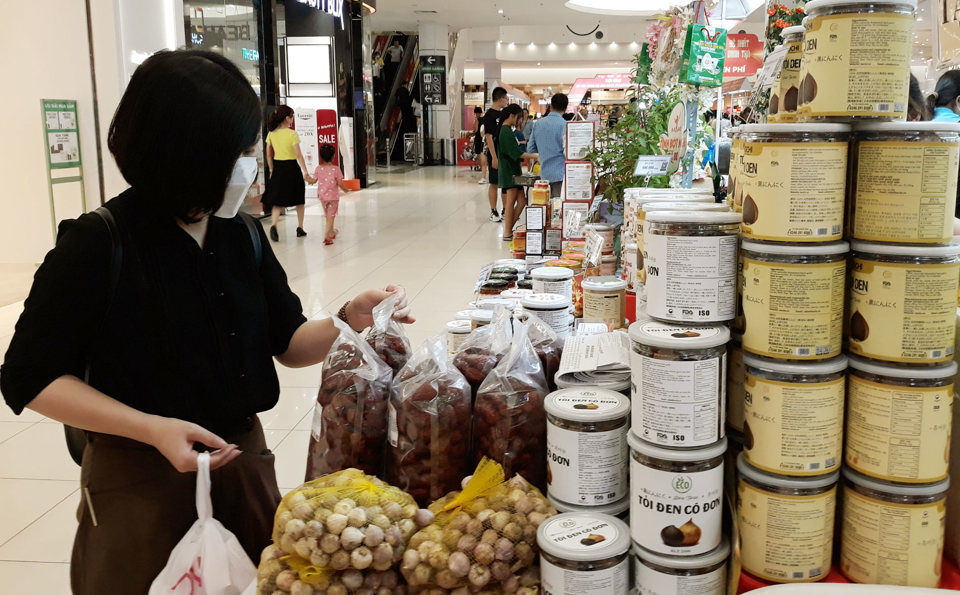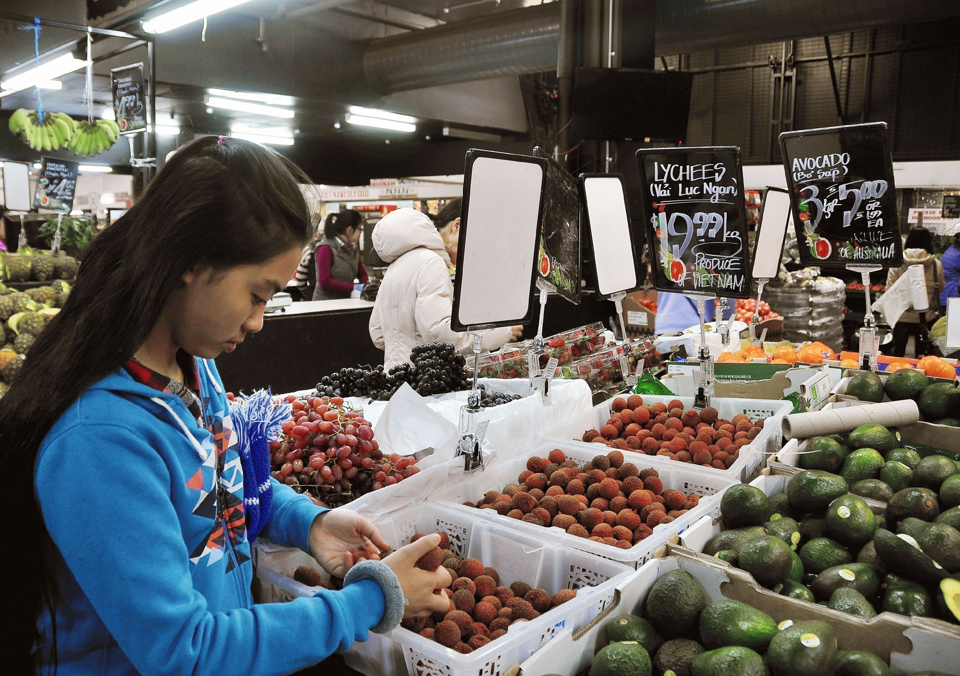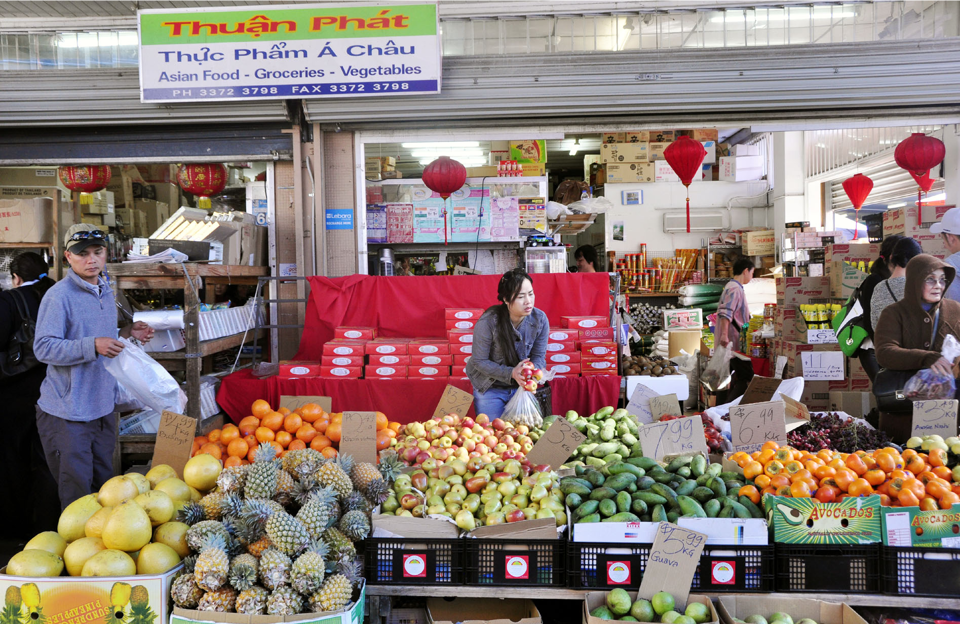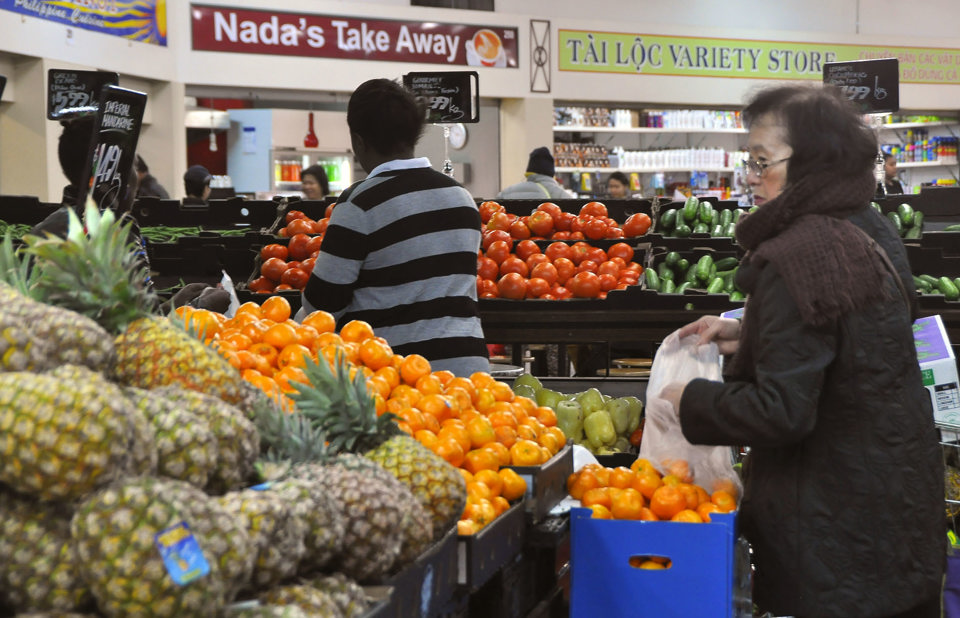Agricultures, Foods, News & Event
Vietnamese agricultural products, if you want to go abroad sustainably, you must maintain your credibility
Kinhtedothi – The supermarket system with foreign investment (FDI) has been bringing many Vietnamese agricultural products into its retail system for consumption around the world. However, for Vietnamese agricultural products to have a sustainable presence in the international market, businesses must maintain their reputation for quality.
Vietnamese goods penetrate the international retail market
Last August, the Ministry of Industry and Trade coordinated with Central Retail Group in Vietnam (which owns the supermarket brands BigC, Tops Market, GO!) to organize Vietnamese Goods Week at Central World (Bangkok, Thailand). Here, Vietnamese businesses introduce regional specialties and OCOP products and participate in trade connections with retail distribution systems in Thailand to seek trade and investment cooperation opportunities.
In fact, in recent times, Vietnamese agricultural products have penetrated many supermarket systems around the world. In June 2023, AEON Vietnam supermarket organizes the “export” of Vietnamese agricultural products such as lychees, longans, bananas, dragon fruits… to all supermarkets and retail stores of the AEON system in Japan and well received by consumers in this country.

Deputy General Director of AEON Group Japan Mitsuko Tsuchiya said that this is the first time the Japanese AEON system introduces agricultural products imported from Vietnam. Previously, from 2017 to 2022, the total export value of Vietnam’s products through AEON’s retail system to Japan and other countries reached more than 2 billion USD but mainly fashion products, household appliances, health care and beauty products manufactured by enterprises in Vietnam.
According to the Ministry of Industry and Trade, after a period of negotiations, the Animal and Plant Quarantine Department (APHIS) of the US Department of Agriculture has allowed Vietnam to export coconuts to this market from August 6. Thus, after mango, longan, lychee, dragon fruit, rambutan, star apple, grapefruit… coconut is the 8th Vietnamese fruit allowed to be exported to the US market.

It is expected that from September 2023, Vietnamese coconuts will also be included in the list of fruits allowed to be officially exported to China. With the US and China simultaneously “opening up” to import this item, Vietnamese coconuts have the opportunity to increase export value and will soon become a billion-dollar export fruit.
Complying with quality regulations is the “key” to long-term exploitation
The main export markets of Vietnamese agricultural products such as China, the US, the EU and Japan are all very “fastidious” markets, with heavy sanctions for exported products that do not meet quality regulations. quantity. Therefore, experts in the field of export all recommend that the most important “key” to effectively and long-term exploitation of markets is to comply with product quality standards set by partners, ensuring ensure sustainable production.

In fact, the negotiation activities for the export of agricultural products show that the negotiation time for the authorities of the two countries to come to an agreement on the export of agricultural products can be up to 10 years. For example, it took 11 years for fresh lychees to be exported to Australia, and 10 years for mangoes to be consumed in the US market.
Although it took many years to negotiate, but after being officially exported, many localities have massively planted, purchased and exported, while just a few shipments that do not meet the requirements can also be Temporarily suspend exports.
Vietnamese businesses received this “lesson” when in early 2022, Japan temporarily stopped importing mangoes because some export businesses mistakenly packed different types of mangoes into Vietnam’s Cat Chu mango batch while this country Only this type of mango is allowed to be imported. Recently, the General Administration of Customs of China (GACC) issued a warning that Vietnamese durian, mango, and longan products violate plant quarantine.

The reason is that localities do not check or do not follow the process, leading to missing cases that do not meet quality requirements but still allow export.
“This may lead to the application of stricter control measures by importing countries, even suspending the import of one or all of Vietnam’s agricultural products” – Director of the European Market Department – America (Ministry of Industry and Trade) Ta Hoang Linh warned.
In order for Vietnam’s agricultural export market to develop sustainably, former Deputy Director of the Central Institute for Economic Management Vo Tri Thanh said that when exporting, enterprises must be open, transparent, and not declare. cheating, borrowing the code of the growing area for export, etc. If it is discovered, the consequences will be huge, even if the export status is canceled, then not only an enterprise will suffer, but the whole industry will be affected. negative impact on reputation.

“Most importantly, businesses must keep their credibility and consider it as one of the prerequisites in exporting agricultural products through the retail system,” Thanh said.
In order to promote sustainable agricultural product production and export, Deputy Minister of Industry and Trade Do Thang Hai said that all units participating in this activity from state management agencies, businesses, and farmers must take change can be successful.
In which, farmers need to ensure compliance with quality standards, techniques, residues of pesticides, etc. to achieve production certifications that are imported by the country. On the side of exporters, it is also necessary to be careful in product selection, focusing on ensuring the quality of each shipment, not following the quantity when raw material areas have not been built.
Source: https://kinhtedothi.vn/nong-san-viet-muon-xuat-ngoai-ben-vung-phai-giu-duoc-chu-tin.html

